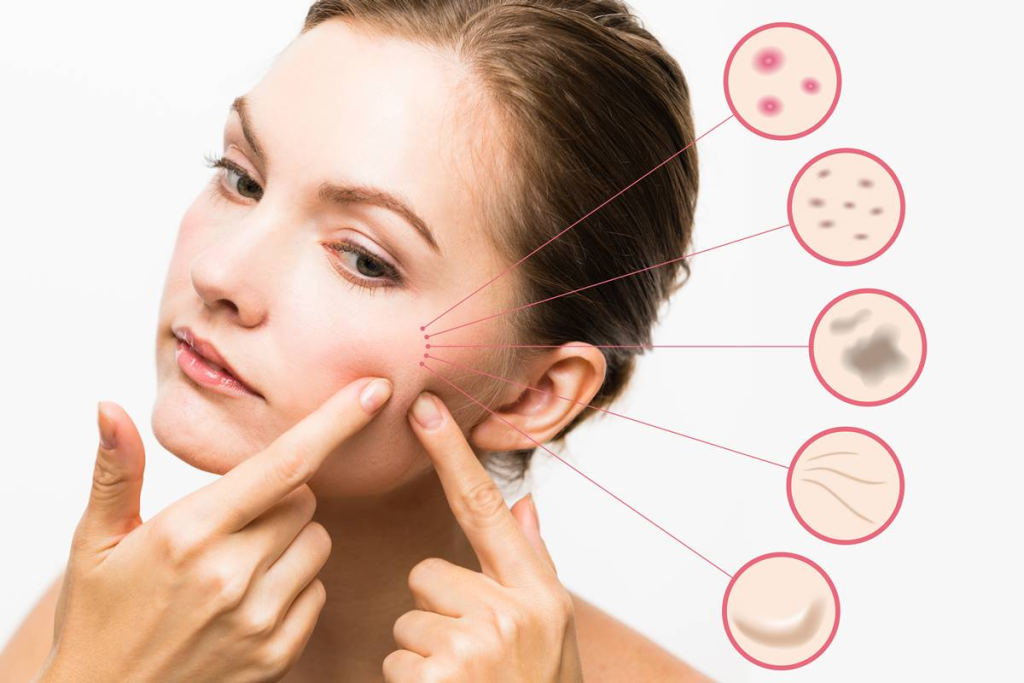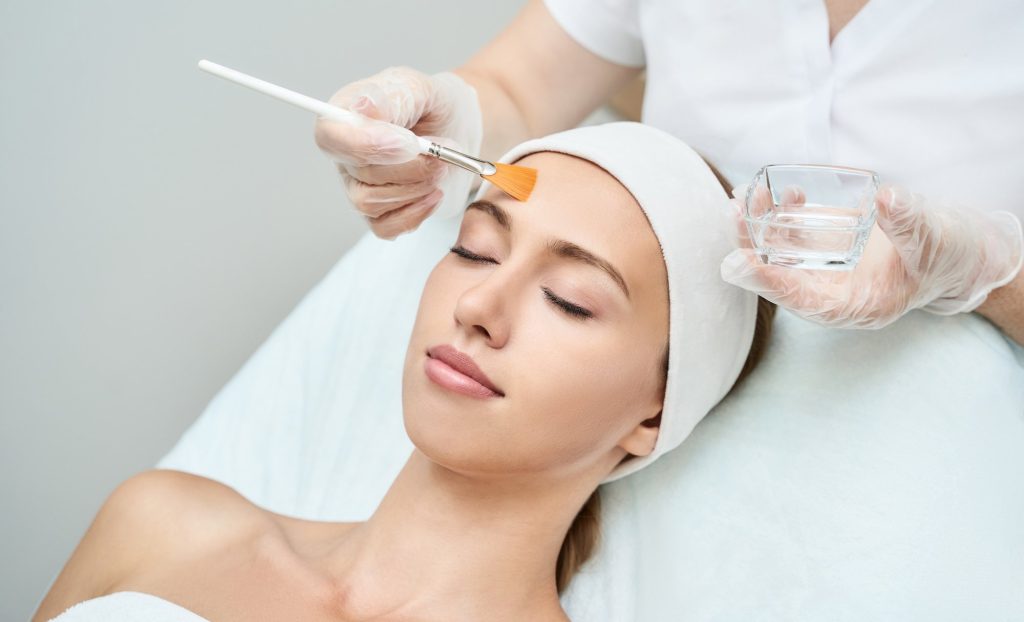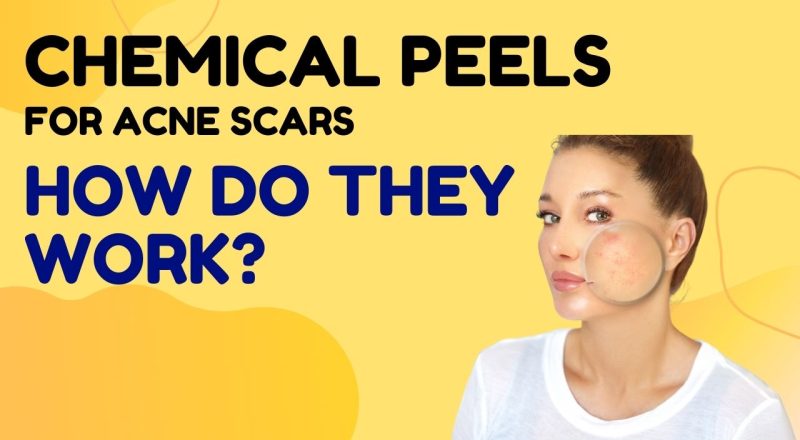Acne scars can be a persistent reminder of past breakouts, affecting not only our physical appearance but also our self-esteem. Many individuals with acne scars seek effective treatments to minimize their appearance and restore smooth, healthy skin. One such treatment option that has gained popularity in recent years is chemical peels. But do chemical peels really work for acne scars? In this blog, we’ll explore the science behind chemical peels, their effectiveness in treating acne scars, and what you should consider before undergoing this procedure.

Understanding Acne Scars
Before delving into chemical peels, it’s essential to understand what acne scars are and how they develop. Acne scars can take on various forms, including atrophic scars (depressed areas) and hypertrophic scars (raised, thickened areas). These scars result from the body’s natural healing process after acne lesions damage the skin’s deep layers, namely the dermis.
The severity of acne scars can vary, with some individuals experiencing mild scarring while others face more pronounced and extensive scars. Factors like genetics, skin type, and the type of acne lesions you have can influence the likelihood of developing significant acne scars.
What Are Chemical Peels?
Chemical peels are a dermatologic procedure used to improve the look or appearence of the skin by applying a chemical solution to the face, neck, or hands. This solution causes the topmost layers of the skin to peel off, promoting the growth of new, smoother, and less scarred skin underneath. Chemical peels can be categorized into three main types:
- Superficial Peels: These peels use mild acids, such as alpha hydroxy acids (AHAs) or beta hydroxy acids (BHAs), to target the outermost layer of the skin (epidermis). They are often used for minor skin imperfections and require minimal downtime.
- Medium Peels: Medium peels use stronger acids, such as trichloroacetic acid (TCA), to penetrate the middle layers of the skin (dermis). They can effectively treat moderate acne scars and may require a longer recovery period.
- Deep Peels: Deep peels use strong acids like phenol to reach the deeper layers of the skin. These peels are typically reserved for severe scarring and can produce magical results, but they also involve the longest recovery time and carry more risks.

The Science Behind Chemical Peels
The concept behind chemical peels is to stimulate the skin’s natural regenerative processes. When the chemical solution is applied tothe skin, it causes controlled damage to the outer layers, prompting the body to initiate a healing response. This process involves the production of new collagen, a protein that helps maintain the skin’s firmness and elasticity. Collagen production can help fill in atrophic acne scars and improve the overall texture and look of the skin.
The Effectiveness of Chemical Peels for Acne Scars
The effectiveness of chemical peels for acne scars largely depends on several factors, including the type and severity of the scars, the type of chemical peel used, and the individual’s skin type. Here’s what you can expect from chemical peels when it comes to treating acne scars:
- Superficial Peels: Superficial peels are generally less effective at treating deep or severe acne scars. They are more suitable for addressing mild scarring, improving skin texture, and reducing superficial scars. Multiple sessions may be needed for noticeable results.
- Medium Peels: Medium peels can provide more significant improvement for moderate acne scars. They penetrate deeper into the skin, stimulating collagen production and resulting in smoother skin. Recovery time can be longer than with superficial peels, and post-procedure care is essential.
- Deep Peels: Deep peels are the most aggressive option for treating severe acne scars. They can produce noticeable results, but they also come with higher risks and a more extended recovery period. Deep peels are typically reserved for individuals with extensive scarring.
It’s important to note that chemical peels are not a one-size-fits-all solution. What works for one person may not work as effectively for another. A board-certified dermatologist or skincare professional can analyse your personal needs and recommend the most suitable type of chemical peel.

Considerations Before Undergoing Chemical Peels
Before deciding to undergo a chemical peel for acne scars, there are several important considerations to keep in mind:
- Consultation: Consult with a qualified dermatologist or skincare specialist to assess your skin type, the type and severity of your acne scars, and your overall health. They can recommend the most suitable treatment plan for your specific needs.
- Realistic Expectations: While chemical peels can improve the appearance of acne scars, they may not completely eliminate them, especially for deep or severe scarring. Have realistic expectations about the results you can achieve.
- Downtime: Be prepared for some downtime, especially with medium and deep peels. Your skin may peel, become red, and require special care during the healing process. Plan accordingly, and avoid scheduling important events immediately after the procedure.
- Sun Protection: Protect your skin from the sun before and after the procedure. Sun exposure can worsen scarring and pigmentation issues. Use sunscreen regularly and follow post-procedure instructions.
- Follow Instructions: Adhere to all pre- and post-procedure instructions provided by your dermatologist. Proper care is crucial for achieving the best results and minimizing complications.
- Cost: Chemical peels can vary in cost based on the type of peel and the number of sessions required. Discuss the cost with your provider and ensure you can budget for the procedure.
if you’re looking to effectively treat acne scars and regain smooth, flawless skin, it’s time to consider the expertise of a seasoned professional like Dr. Manisha Chandan Saney, BHMS, PG – an accomplished Cosmetologist and Trichologist. Chemical peels for acne scars are a proven and safe method for achieving remarkable results, and with Dr. Saney’s specialized knowledge and experience, you can trust that you’re in capable hands.
Don’t let acne scars hold you back from feeling confident and radiant. Reach out to Dr. Saney for a consultation and personalized treatment plan tailored to your unique needs. With her guidance, you can embark on a transformative journey towards clearer, scar-free skin. Take that crucial step today and schedule a consultation with Dr. Manisha Chandan Saney to rediscover the beauty and confidence you deserve.
